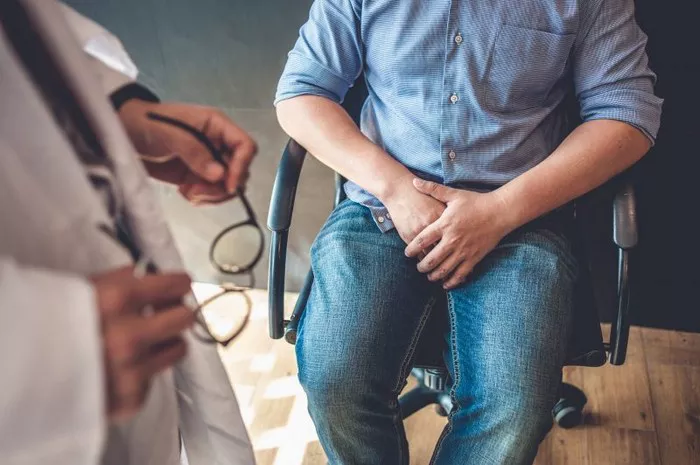Varicocele is a condition that affects many men, particularly those in their teens to early adulthood. It occurs when the veins within the scrotum become enlarged, similar to varicose veins in the legs. Though it is most commonly associated with pain or discomfort in the scrotum, many people wonder if varicocele can also cause pain in the abdomen. In this article, we will explore the relationship between varicocele and abdominal pain, the possible causes of this pain, and how varicocele is diagnosed and treated.
What is Varicocele?
Before understanding the potential connection between varicocele and abdominal pain, it is important to understand what varicocele is and how it affects the body. A varicocele is an enlargement of the veins within the scrotum. The veins involved are part of a network known as the pampiniform plexus, which is responsible for draining blood from the testicles. In a healthy system, these veins work properly, allowing blood to flow efficiently. However, when the valves within these veins fail, blood begins to pool, causing the veins to expand.
The condition is most often detected in young men and can lead to a number of issues, including pain, discomfort, and potential fertility problems. The pain from varicocele is typically located in the scrotum and lower abdomen, but it can sometimes radiate to the groin or back.
Can Varicocele Cause Abdominal Pain?
The question of whether varicocele can cause abdominal pain is one that many patients and healthcare professionals consider. While varicocele itself is primarily associated with pain in the scrotal area, it is possible for some men to experience abdominal discomfort as well. There are a few ways in which varicocele may indirectly cause abdominal pain.
Increased Pressure in the Abdomen
Varicocele can lead to increased pressure within the abdomen, especially when the condition is more severe. As blood pools in the veins, it can create a backup of pressure that may extend into the abdominal area. This pressure may result in a feeling of fullness or discomfort in the lower abdomen. The veins in the scrotum are closely connected to the veins in the abdominal region, so any changes in the scrotal veins can affect the blood flow to nearby areas.
In some cases, the abdominal pain associated with varicocele may not be sharp but rather a dull ache or pressure that comes and goes. This pain may worsen with physical activity, heavy lifting, or other activities that increase intra-abdominal pressure.
Referred Pain
Referred pain occurs when pain is felt in one area of the body, but it originates from another location. In the case of varicocele, some men may experience abdominal pain as a result of referred pain from the scrotum or testicles. The nerves in the pelvic area, which supply both the scrotum and the abdomen, can transmit pain signals from the scrotal veins to the abdominal region. As a result, even though the varicocele itself is not directly affecting the abdomen, the pain can still be felt there.
Testicular Discomfort Leading to Abdominal Pain
Varicocele is often accompanied by testicular discomfort. The enlarged veins can put pressure on the testicles, causing pain that radiates to other areas of the body. Some men may describe the pain as a dull ache or a sensation of heaviness in the scrotum. In some cases, this discomfort can extend into the lower abdomen, leading to abdominal pain as well. This pain may worsen after standing for long periods, physical exertion, or sexual activity.
Associated Conditions
While varicocele itself does not directly cause abdominal pain, it can be associated with other conditions that can lead to abdominal discomfort. For example, some men with varicocele may also have inguinal hernias, which can cause pain in the lower abdomen and groin area. In some cases, the presence of an inguinal hernia or another abdominal condition may contribute to the perception of abdominal pain alongside varicocele.
Hormonal Changes and Abdominal Pain
Hormonal changes can sometimes contribute to the development or exacerbation of varicocele. Varicocele is more common in men with low testosterone levels or hormonal imbalances. These hormonal fluctuations can lead to changes in blood flow and increased pressure within the veins, which may also contribute to abdominal discomfort. In such cases, the abdominal pain may be related to the overall hormonal imbalance rather than the varicocele itself.
Diagnosing Varicocele
Varicocele is usually diagnosed through a physical examination by a healthcare provider. During the exam, the doctor will feel the scrotum for any enlarged veins and assess the size and consistency of the veins. The doctor may ask the patient to stand while performing the examination, as varicoceles tend to become more prominent when standing.
In some cases, additional tests may be necessary to confirm the diagnosis or assess the severity of the varicocele. An ultrasound is commonly used to get a more detailed view of the veins and blood flow. This non-invasive test uses sound waves to create an image of the veins and can help identify any abnormalities.
If abdominal pain is present, the doctor may also perform additional tests to rule out other possible causes of the discomfort, such as gastrointestinal issues or hernias.
Treatment Options for Varicocele
Treatment for varicocele is typically recommended if the condition causes pain, discomfort, or fertility issues. In many cases, varicocele can be managed with lifestyle changes and medications. However, if the symptoms are severe or persistent, more invasive treatments may be necessary.
Conservative Management
In cases where the varicocele is not causing significant pain or fertility problems, conservative management may be sufficient. This includes wearing supportive underwear, avoiding heavy lifting, and taking over-the-counter pain medications to manage discomfort. Some men may find relief from abdominal pain by using warm compresses or taking anti-inflammatory medications.
Surgery: Varicocelectomy
For more severe cases of varicocele or when conservative management does not provide relief, surgery may be necessary. The most common surgical procedure for treating varicocele is called varicocelectomy. This procedure involves tying off or removing the enlarged veins to improve blood flow and reduce the pressure on the scrotum and abdomen. Varicocelectomy is typically performed under general anesthesia, and the procedure has a high success rate in relieving symptoms and improving fertility.
Embolization
Another treatment option for varicocele is embolization, a minimally invasive procedure in which a small catheter is inserted into the affected veins. The catheter is used to block the blood flow to the enlarged veins, causing them to shrink. This procedure is often preferred for men who want to avoid surgery or for those who are not candidates for traditional surgery.
Conclusion
Varicocele can cause discomfort and pain, but it is not typically associated with direct abdominal pain. However, there are several factors that can lead to abdominal discomfort in men with varicocele, including increased pressure in the abdomen, referred pain, and associated conditions. If you experience pain in the abdomen or scrotum, it is important to seek medical attention to determine the underlying cause and receive appropriate treatment. While varicocele can sometimes be managed conservatively, surgery or embolization may be necessary for more severe cases. Early diagnosis and treatment can help alleviate symptoms and improve overall health.
Related topics:
Can Varicocele Cause Pelvic Pain?
























